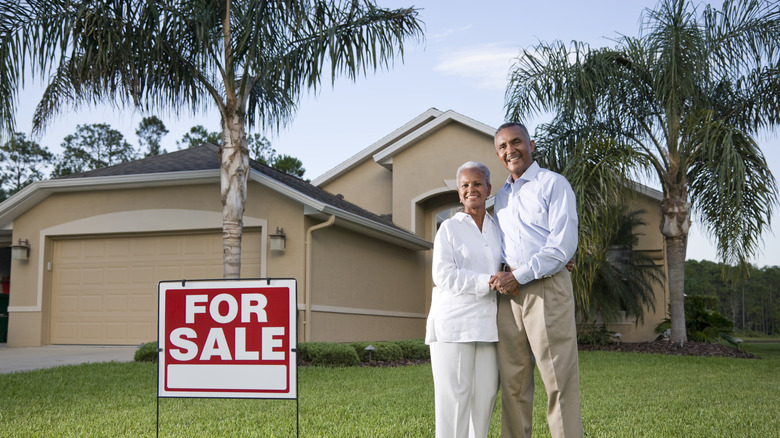Why You Should Think Twice Before Selling Your Home And Renting After Retirement
For today's retirees, a major decision that they have to make is whether to stay in their home or downsize to a smaller property. Many retiring homeowners consider whether they should bother with homeownership at all anymore. Renting can give a retiree some peace of mind.
Like with most decisions in life, there are both pros and cons to selling and renting. A major appeal of selling a house lies in the freedom from responsibility it gives. By divesting from the home, retirees no longer have to worry about maintenance responsibilities, unpredictable monthly expenses, or tied-up equity.
There are also downsides in selling out for those who are ready to retire. Moving to a rental involves more than just a loss of the familiar comfortable surroundings of the home. It can lead to unforeseen rent increases, lost equity appreciation, and diminished control over the place where they live. It is important for retirees to carefully consider the pros and cons involved with renting before they leap into the unknown.
There are advantages to selling a home and renting
Renting has some tangible benefits for retirees living on fixed income. Eliminating maintenance responsibilities is an important consideration. It takes both work and money to own a home. Homeowners are on the hook when it comes to the costs of repair work and continuing maintenance. The expenses involved in repairing a roof or replacing a water heater can range from $1,500 to $10,000. Unpredictable repair costs like this quickly eat into retirement savings.
The predictable monthly expenses of renting appeal to many retirees. The rent cost is fixed for the term of the contract, and there are no expensive repairs to fear. Mortgage payments are eliminated along with high property taxes that often increase over time. Homeowners' insurance is another worrying expense that renters can forget. Freed up time and energy spent worrying about unpredictable costs can be better used focusing on enjoying retirement.
A final advantage to selling the house and renting lies in the freed up equity that was formerly tied up in the home. Many retirees discover that they can unlock this equity and then use it for any number of expenses. These could be for travel, daily costs of living, increased cash flow, unforeseen medical bills, or simply peace of mind.
Downsides exist to renting after retirement
Choosing to sell a home and rent for the remaining golden years is not an entirely one-sided proposition. Prospective renters should know that the rent probably will increase over time. This cannot occur during the set period of the rental contract, but is a real risk when it comes time to renew the lease. The welcome predictability of the monthly rent is not open ended.
Another tradeoff to renting versus owning comes with the loss of potential equity appreciation. Retirees find that selling their home and not rolling it into another one means that there will be no more appreciation in home value. Instead, the equity transforms into cash flow to help fund their retirement.
Renters also lose full control over the property that they enjoyed in home ownership. One of the sacrifices renters inevitably make is in their ability to change the rental property. For those retirees who had planned to spend much of their golden years doing significant home renovation projects or showcasing their creativity in the property, this can be a game changer. Some leases work around this limitation by allowing for renters to paint the property or liven it up with their own decor. The rules are different if you are retiring abroad.


